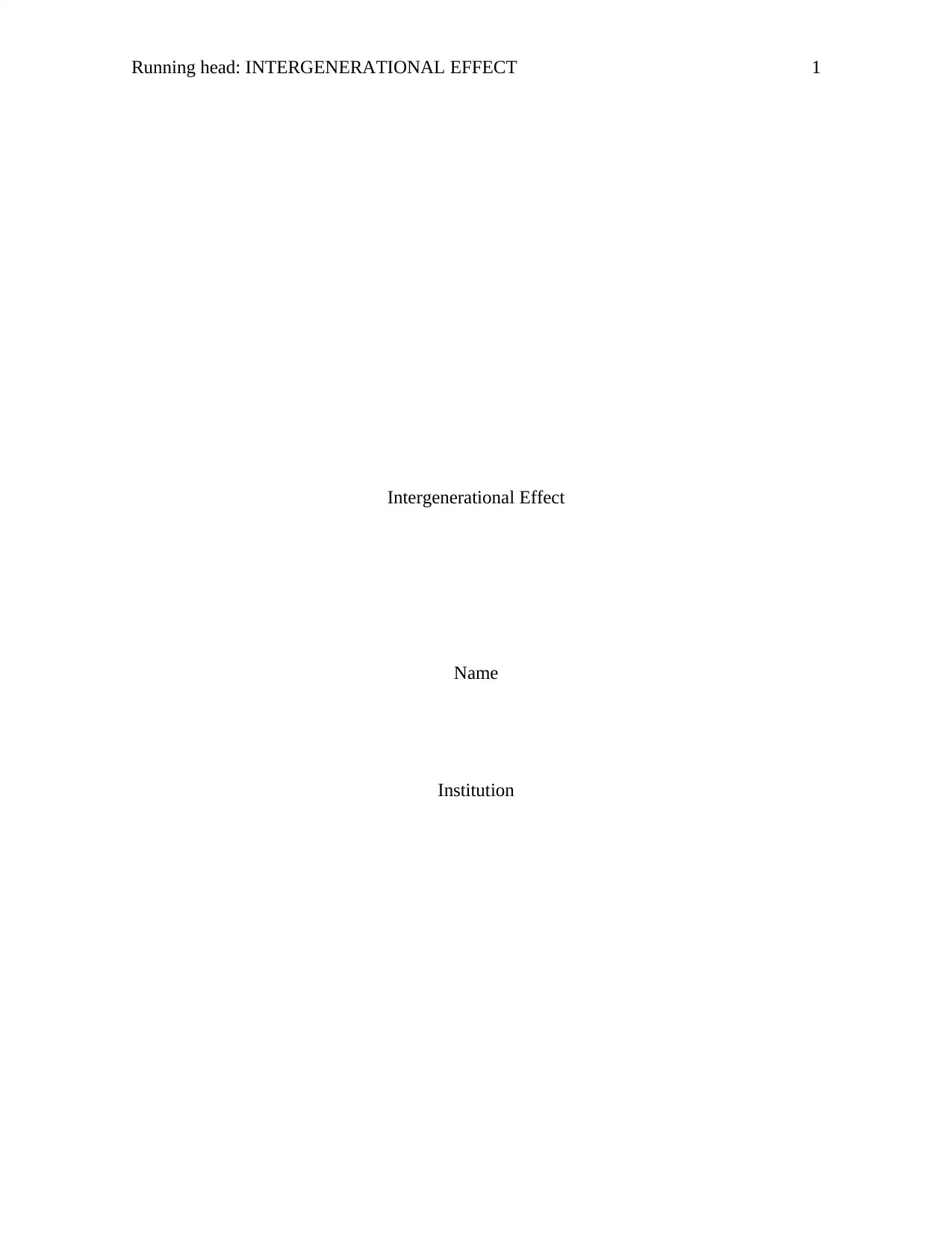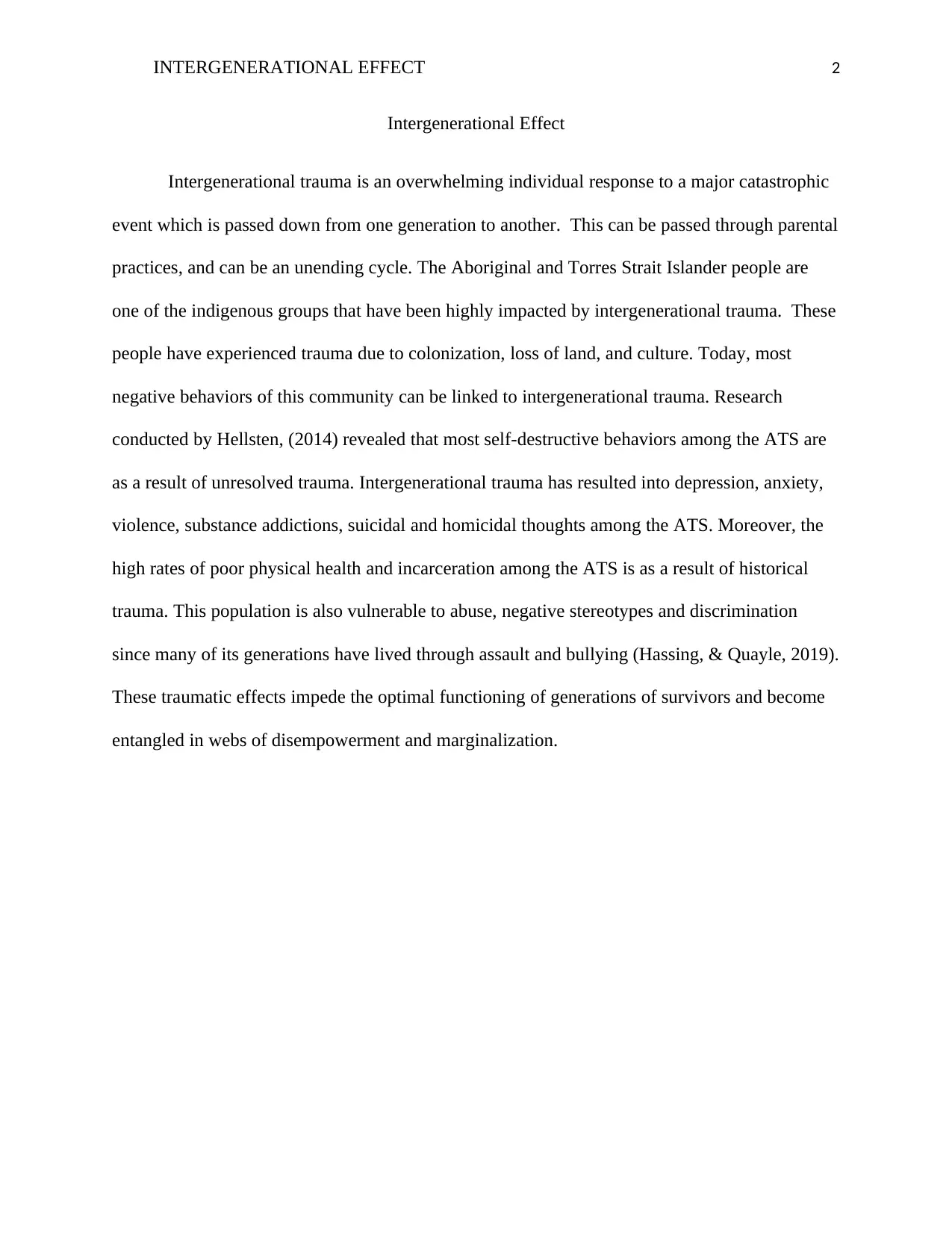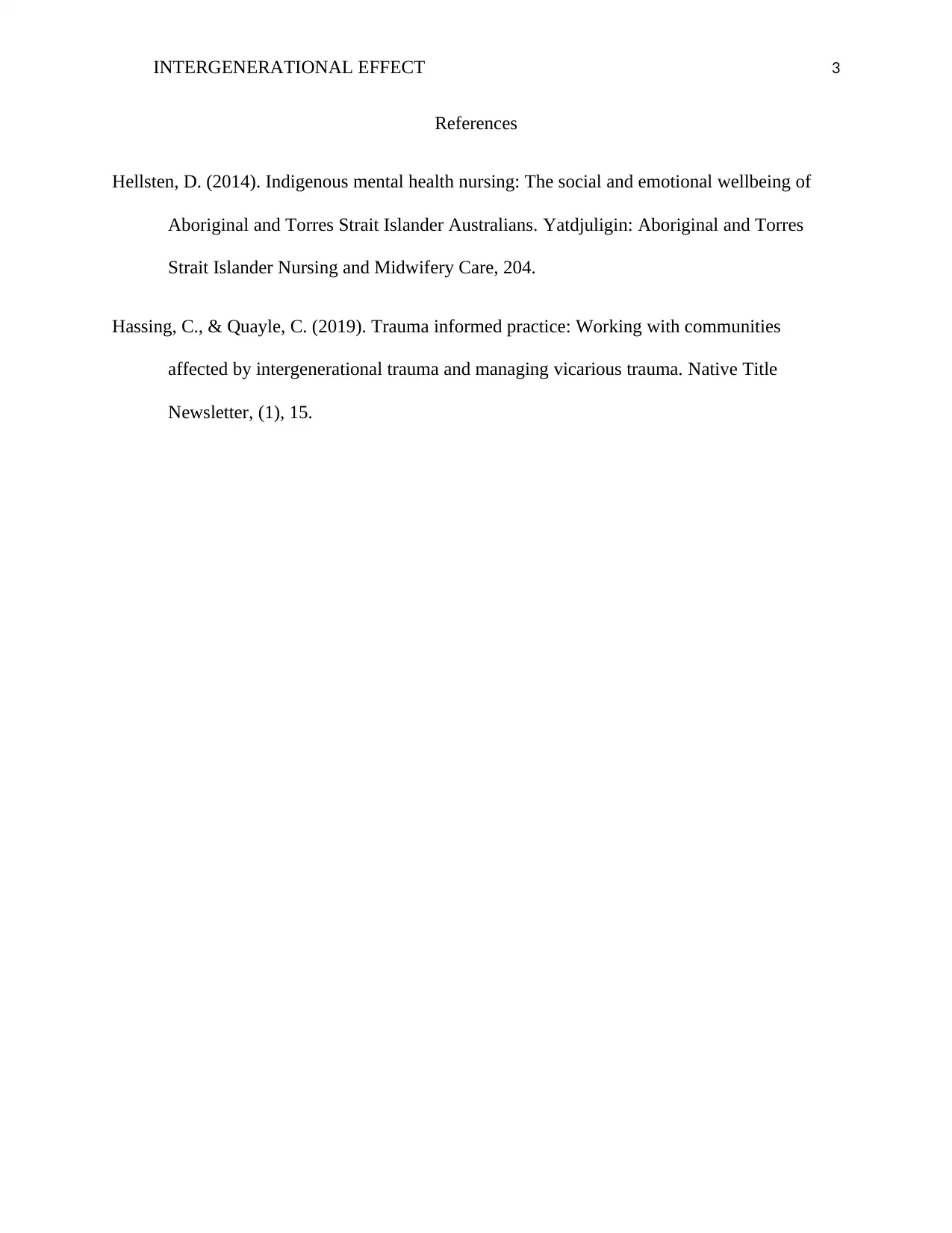Intergenerational Effect: The Impact of Trauma on ATS People
VerifiedAdded on 2022/09/14
|3
|304
|19
Report
AI Summary
This report examines the intergenerational effect, specifically focusing on the impact of trauma on the Aboriginal and Torres Strait Islander (ATS) people. It highlights how colonization, loss of land, and cultural disruption have led to intergenerational trauma within this community. The research, referencing Hellsten (2014) and Hassing & Quayle (2019), discusses how unresolved trauma manifests in various negative behaviors such as depression, anxiety, substance abuse, and suicidal thoughts. The report further explores the connection between historical trauma and poor physical health, incarceration rates, and vulnerability to abuse and discrimination among ATS generations, emphasizing the cycle of disempowerment and marginalization that results from these traumatic experiences.
1 out of 3









![[object Object]](/_next/static/media/star-bottom.7253800d.svg)